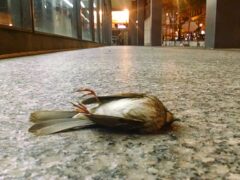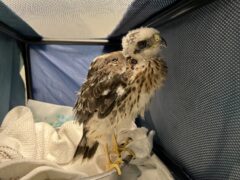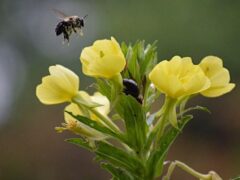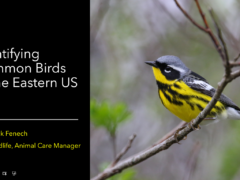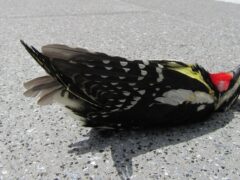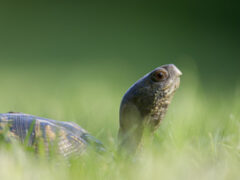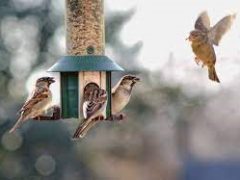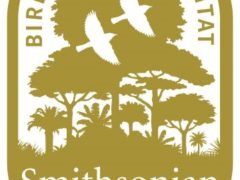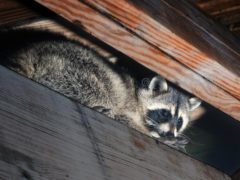Collisions with buildings kill more birds than any other human factor besides habitat loss and domestic cats, and in urban areas, the problem worsens during periods of migration. Researchers estimate that one billion birds die annually due to collisions with glass. Most neo-tropical songbirds migrate at night to avoid turbulence in the air and [Read More …]
Rat Poison Kills More Than Rats
It can start at the bird feeder, or maybe a public garbage can. Discarded food waste and garbage offer a smorgasbord for small rodents, who scavenge for a living. From there, it only makes sense that the animals who feed on those smaller animals, wild ones and feral or outdoor cats, are attracted secondarily. It’s a whole food chain, right in your [Read More …]
Bringing Back the Pollinators
Insect pollinators are an essential part of the food chain’s foundation, both for humans and for all other animals. They are necessary for the reproduction of over 85 percent of the world’s flowering plants, including more than two-thirds of the world’s crop species. Alarmingly, a 2019 study reports that 40 percent of all insect species are [Read More …]
Beginning Birding
On April 27, City Wildlife animal care manager, Dominick Fenech, presented an informative webinar for people interested in getting started in birding in the Washington, DC, area. Here is a link to his talk: [Read More …]
Help save birds using Lights Out DC online
Take action for migratory birds – Join Lights Out DC online! Help City Wildlife save birds! If you see a dead bird on a sidewalk in Washington, DC, please take a picture and upload it to https://www.inaturalist.org/projects/bird-safe-dc, entering the address where you found it. If the bird is still alive, call DC Animal Care and Control at (202) [Read More …]
Living with Box Turtles
On March 23, 2023, Dr. Peter Paul van Dijk of the Turtle Conservancy, the Turtle Survival Alliance, and other turtle conservation groups presented a webinar on the status and conservation of Eastern Box Turtles. Here is a recording of his talk: [Read More …]
City Wildlife Trivia Night is back!
What names were given to the Bald Eagles who nest at the arboretum? Why are Eastern Box Turtles called “box” turtles? Sunday, October 2, 6 – 8 p.m. Kingfisher, 1414 14th Street, NW, Washington, DC 20005 Join us for our second-ever Trivia Night! This fundraiser will be an entertaining evening of nature-themed trivia to challenge your [Read More …]
Who is really visiting your bird feeder?
The cardinals, the finches, the doves… the many, many sparrows… What a treat it is to watch the bustling activity at a bird feeder! Of course, only about 20 percent of a bird’s overall diet comes from bird feeders; the majority of their daylight hours are spent foraging for bugs or seeds, mainly from native plants, weeds, and the like. But aside [Read More …]
I’ll take two sugars, a side of good karma, and a chance to see an oriole
Where does your coffee come from? Columbia? Honduras? The Starbuck’s on the corner? Fair enough. But where does it REALLY come from? Increasingly, land in Central and South American is being clear-cut for coffee plantations that feed our love of the morning brew. That clearing removes all the trees and foliage that many of our migratory [Read More …]
Trapping and Re-Locating: Ineffective and Inhumane
It should come as no surprise that ongoing urban development in the District of Columbia has increasingly reduced local wildlife habitat. Wild animals are being pushed into yards and other spaces, which we humans think of as being reserved solely for our usage. Conflicts are bound to occur. The animals are simply trying to survive. Most people [Read More …]
- « Previous Page
- 1
- 2
- 3
- 4
- …
- 10
- Next Page »
